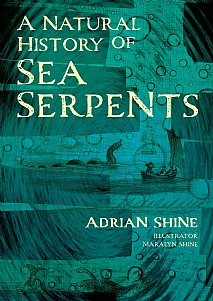Loch Ness Project

Archive Room
Groundtruth
Loch Ness
Reflections
Serpents
Media and Footage
Loch Ness Researcher Adrian Shine |
||
The Archive Room  Author's Index A - Z The Loch Ness Timeline |
Fieldwork & Groundtruth R.O.S.E.T.T.A. Project eDNA Survey Finding Crusader Operation Deepscan Finding Pansy Field Studies The Wellington Bomber Sherlock's Monster |
Explore Loch Ness  Tour Loch Ness Underwater World Tools of the Trade |
Reflections & |
A Natural History of Sea Serpents  Reviews |
Adrian Shine and Footage  Media Contact Lectures & Talks Film Archive |
Disclaimer - I don't subscribe to 'the eel theory' as shown in 'Fantastic Beasts', the meaning was lost in the edit. IMAGES ON THIS SITE ARE ©A and M SHINE (OR VARIOUS) WHOSE DETAILS CAN BE HAD ON REQUEST . DOWNLOAD OR USE OF IMAGES IS PROHIBITED WITHOUT WRITTEN CONSENT |
||
Loch
Ness Research |
||
THE ARCHIVE ROOM A-Z Author List Simply a list and the quickest way to find a publication or study where the author is known. Links are provided where possible. University course dissertations are included, though links are currently to abstracts only. Copies are generally held by the Loch Ness Project Library. Research.and exploration of Loch Ness authors and scientific papers. An historical list of contemporary documents and investigation of the Loch Ness Monster. More Here The Timeline Mainly the investigations of the Loch Ness Monster controversy and as its name suggests, is a chronological history with the source references inserted and linked where possible. Because it is designed to show the evolution of method and thought, departures are made from the historical chronology where it seems relevant. The archive is restricted to expeditions or other studies where authoritative reports or published papers have been produced. Thus, newspaper material is only used where it is authored by the investigators themselves and in one case where a newspaper reporter was himself a principal investigator. Sometimes it has not been possible, for copyright or other reasons, to include an important item. Books, for example, or some journal publications have simply been referenced. For the same reason most items are reproduced in a PDF secure (read only) form. Where possible the material retains its original appearance but some is rearranged for screen viewing. If necessary, documents have been digitally retouched for legibility. The kind assistance given by the copyright holders is gratefully acknowledged. Editorial
bias: The inclusion of items mostly reflects
whether material is considered "diligent" and
it is hoped that no injustice has been done. The
remaining scope for bias lies within those passages
which attempt to link the pages of the archive
and to demonstrate interaction or debate within
them. These passages may reflect the author's
personal opinions. |
||
LNP FIELDWORK & GROUNDTRUTH |
||
It was announced that Scottish Natural Heritage (SNH) was forming a Loch Ness Environment policy with a view to developing a code of practice for visiting Loch Ness monster hunters who might inadvertently cause damage to the loch's habitats, or individual creatures within it. This move was prompted by the proposal of a Swedish monster hunter and ufologist Jan Sundberg, to place a 6m long creel trap in Loch Ness. The SNH area manager Jonathan Stacey, made it clear that they had no policy on Nessie as such and the prime aim was to "protect the known from those pursuing the unknown. A
Key to Loch Ness Monster Sightings Definition |
||
'A NATURAL HISTORY OF SEA SERPENTS' by Adrian Shine New book in 2024 and available here " LOCH NESS" A 32 page booklet "Loch Ness", is Adrian Shine's account of everything about Loch Ness from Continental Drift to Loch Ness Monster Hoaxes . As a naturalist he takes an environmental perspective which sheds unnexpected light into the controversy. Now available through the Cobbs retail chain. |
||
ADRIAN SHINE MEDIA Adrian Shine is an experienced media contributor and is also available for talks and lectures © A and M SHINE |
||
